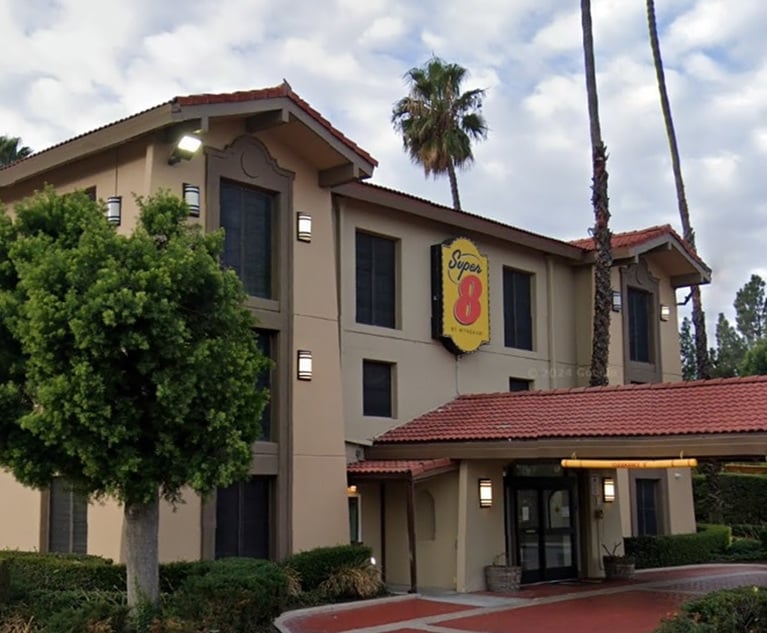Unpublished Opinions for the Week of July 31, 2017
07-2-3825 Jones v. S. Jersey Industries, Inc., N.J. Super. App. Div. (per curiam) (13 pp.) Plaintiff appealed the verdict for defendant employer in his…
July 27, 2017 at 03:48 PM
77 minute read
07-2-3825 Jones v. S. Jersey Industries, Inc., N.J. Super. App. Div. (per curiam) (13 pp.) Plaintiff appealed the verdict for defendant employer in his discrimination action. Plaintiff contended that the jury instructions and the manner in which deliberations were carried out were fatally flawed. During jury selection, the trial judge told the jury that they would have Fridays off. During deliberations, the jury asked several questions and received the charges in writing. The second day of deliberations, the jury told the judge they were stuck at a vote of four to four and asked for advice. They were told to keep deliberating. At the end of the day, the jury was told to return the next day, which was a Friday. The court attendant reported that one juror said he had a “problem” with Friday, but all jurors showed up the next morning and they reached a verdict. Plaintiff argued that the supplemental jury instructions and requiring the jury to come in on a Friday had an inherent coercive effect. The court found that the record did not support plaintiff's argument. The jury had the full written instructions during deliberations and the record showed that it was an active jury that was comfortable asking questions. The judge's instructions were designed to assure the jury that their efforts were appreciated and the timeline countered the suggestion that the jury was coerced.
09-2-3826 Grant v. Dan's Auto Body, L.L.C., N.J. Super. App. Div. (per curiam) (12 pp.) Following an automobile accident in 2007, appellant brought her vehicle to respondents for repairs. She subsequently returned for a repainting of her hood in 2013. While leaving the premises, the brakes failed and a police report observed that brake fluid appeared to be leaking from one of the rear tires. Appellant filed the underlying complaint alleging that poor-quality parts were used to repair the vehicle causing damage which was not discoverable until the brake failure. Appellant contended respondent was negligent in making repairs both in 2007 and 2013 as well as violations of the Consumer Fraud Act. Upon motion, the trial court granted respondent's summary judgment finding appellant's claims were outside the statute of limitations, failure to substantiate claims with expert testimony under the rules of N.J.S.A. 2A:14-2, and lack of standing to investigate licensees under N.J.S.A. 39:13-1. Further, the trial judge found respondents did not violate the CFA as appellant signed invoices and the repaint job was completed without compensation. On appeal, the court affirmed holding the 2007 repairs complied with the CFA and the repaint job was completed for apparent good will. As such, appellant suffered no ascertainable loss and there was no evidence of unlawful conduct under N.J.S.A. 56:8-19. The court found no error in dismissal of the CFA claims as to the 2007 repairs or the granting of summary judgment with regard to the 2013 allegations.
09-3-3854 Walker v. All Points Auto. & Towing, Inc., N.J. Super Law Div. (Wilson, J.S.C.) (7 pp.) Defendant towing company moved for summary judgment in plaintiff's action alleging violations of the Predatory Towing Act and Truth-in-Consumer Contract, Warranty and Notice Act by charging an administrative fee. Plaintiff was stopped by the police because his vehicle was not registered and police called defendant to tow the vehicle. Plaintiff retrieved the vehicle several days later after the police released it and he paid the towing charge, storage charge and the administrative fee without objection. He sued ten months later. Plaintiff never filed any complaint with or even approached the Division of Consumer Affairs as required by N.J.A.C. §13:45A-31.4(f). He filed this putative class action without any attempt to resolve the dispute with defendants. The plain language of the statute required plaintiff to use good faith efforts to resolve the dispute. Additionally, the fees charged by defendant were in compliance with the N.J. Regulations and borough ordinances. [Filed July 24, 2017]
This content has been archived. It is available through our partners, LexisNexis® and Bloomberg Law.
To view this content, please continue to their sites.
Not a Lexis Subscriber?
Subscribe Now
Not a Bloomberg Law Subscriber?
Subscribe Now
NOT FOR REPRINT
© 2025 ALM Global, LLC, All Rights Reserved. Request academic re-use from www.copyright.com. All other uses, submit a request to [email protected]. For more information visit Asset & Logo Licensing.
You Might Like
View All



Trending Stories
- 1Uber Files RICO Suit Against Plaintiff-Side Firms Alleging Fraudulent Injury Claims
- 2The Law Firm Disrupted: Scrutinizing the Elephant More Than the Mouse
- 3Inherent Diminished Value Damages Unavailable to 3rd-Party Claimants, Court Says
- 4Pa. Defense Firm Sued by Client Over Ex-Eagles Player's $43.5M Med Mal Win
- 5Losses Mount at Morris Manning, but Departing Ex-Chair Stays Bullish About His Old Firm's Future
Who Got The Work
J. Brugh Lower of Gibbons has entered an appearance for industrial equipment supplier Devco Corporation in a pending trademark infringement lawsuit. The suit, accusing the defendant of selling knock-off Graco products, was filed Dec. 18 in New Jersey District Court by Rivkin Radler on behalf of Graco Inc. and Graco Minnesota. The case, assigned to U.S. District Judge Zahid N. Quraishi, is 3:24-cv-11294, Graco Inc. et al v. Devco Corporation.
Who Got The Work
Rebecca Maller-Stein and Kent A. Yalowitz of Arnold & Porter Kaye Scholer have entered their appearances for Hanaco Venture Capital and its executives, Lior Prosor and David Frankel, in a pending securities lawsuit. The action, filed on Dec. 24 in New York Southern District Court by Zell, Aron & Co. on behalf of Goldeneye Advisors, accuses the defendants of negligently and fraudulently managing the plaintiff's $1 million investment. The case, assigned to U.S. District Judge Vernon S. Broderick, is 1:24-cv-09918, Goldeneye Advisors, LLC v. Hanaco Venture Capital, Ltd. et al.
Who Got The Work
Attorneys from A&O Shearman has stepped in as defense counsel for Toronto-Dominion Bank and other defendants in a pending securities class action. The suit, filed Dec. 11 in New York Southern District Court by Bleichmar Fonti & Auld, accuses the defendants of concealing the bank's 'pervasive' deficiencies in regards to its compliance with the Bank Secrecy Act and the quality of its anti-money laundering controls. The case, assigned to U.S. District Judge Arun Subramanian, is 1:24-cv-09445, Gonzalez v. The Toronto-Dominion Bank et al.
Who Got The Work
Crown Castle International, a Pennsylvania company providing shared communications infrastructure, has turned to Luke D. Wolf of Gordon Rees Scully Mansukhani to fend off a pending breach-of-contract lawsuit. The court action, filed Nov. 25 in Michigan Eastern District Court by Hooper Hathaway PC on behalf of The Town Residences LLC, accuses Crown Castle of failing to transfer approximately $30,000 in utility payments from T-Mobile in breach of a roof-top lease and assignment agreement. The case, assigned to U.S. District Judge Susan K. Declercq, is 2:24-cv-13131, The Town Residences LLC v. T-Mobile US, Inc. et al.
Who Got The Work
Wilfred P. Coronato and Daniel M. Schwartz of McCarter & English have stepped in as defense counsel to Electrolux Home Products Inc. in a pending product liability lawsuit. The court action, filed Nov. 26 in New York Eastern District Court by Poulos Lopiccolo PC and Nagel Rice LLP on behalf of David Stern, alleges that the defendant's refrigerators’ drawers and shelving repeatedly break and fall apart within months after purchase. The case, assigned to U.S. District Judge Joan M. Azrack, is 2:24-cv-08204, Stern v. Electrolux Home Products, Inc.
Featured Firms
Law Offices of Gary Martin Hays & Associates, P.C.
(470) 294-1674
Law Offices of Mark E. Salomone
(857) 444-6468
Smith & Hassler
(713) 739-1250






